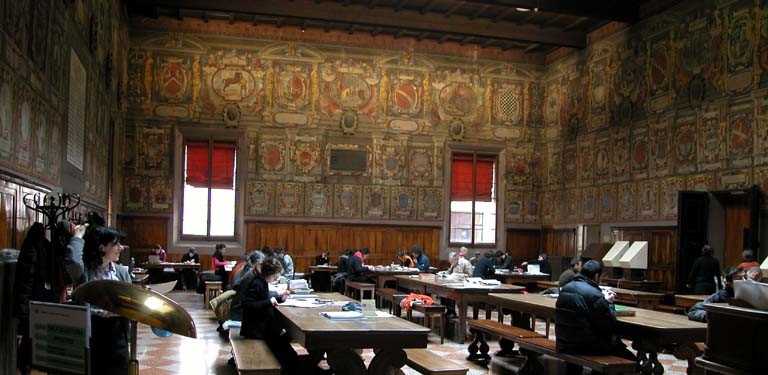The library
The Public Library was founded in 1801 by the Department of the Rhine. The library collects the book heritage of religious congregations dissolved by the Napoleonic age (1797-1798) and by the Kingdom of Italy (1866).

The new library was first housed at the Convent of St. Domenico, then relocated in 1838 at the Archiginnasio Palace. The material was organized according to the topic and placed in the ancient classrooms of the Studio by the librarian Luigi Frati.
Over time, many donations, in addition to the accessions, enriched the heritage of the library. It was not possible to protractedly keep the general documentation in all fields of knowledge which had characterized the first phase of life of the library. The focus was more and more on the humanistic disciplines, paying particular attention to everything related to the civil, political and cultural life of the city of Bologna and its territory.
Over the years, the Archiginnasio has become a library of research and preservation, strengthening a vocation marked by the parallel development of the Popular Library, founded in 1909 as a section of the Archiginnasio and, later, it became the Central Library of public reading.
The library promotes numerous cultural initiatives: conference cycles, book presentations, meetings and exhibitions; the publishing activity is remarkable too, consisting in the publication of the magazine "L'Archiginnasio", of catalogues of exhibitions organized by the institute, and of the volumes of the series "La biblioteca de l'Archiginnasio".
